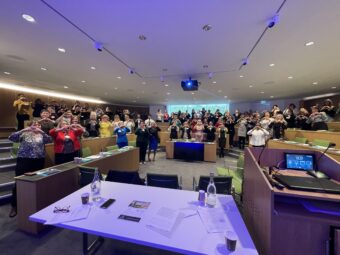
How can a will prepared during the Coronavirus pandemic be challenged?
In the last few months, life as we know it has changed beyond recognition. Coronavirus has taken hold in the UK and it has left many people scrambling to get their affairs in order.
In the last few months, life as we know it has changed beyond recognition. Coronavirus has taken hold in the UK and it has left many people scrambling to get their affairs in order. There has been an unprecedented surge in people taking steps to make a will or update their existing will.
The social distancing guidelines currently in place mean face to face meetings when taking instructions for a will and/or , then executing a will are a thing of the past for will drafting solicitors. This coupled with the urgency to make a new will could result in people falling foul of the strict requirements for a will to be valid.
So what is required for a will to be valid?
Section 9 of the Willa Act 1937 requires a will to be in writing, signed by the testator in the presence of two witnesses who sign it in the testator’s presence. Case law indicates that it must be physical presence.
A testator must have testamentary capacity to make a will, this means the testator needs to know they are making a will that will take effect on death; know what property they have to dispose of; be aware of people who may have a claim on their estate; and be broadly aware of how they have shared out their estate.
A testator must have made their will free from the influence of other people.
A testator must know the contents of their will, for example by reading it or having it read to them, and they must approve those contents.
The current crisis could see people attempting to witness wills at a distance through a window for example or via a video link. It remains to be seen whether the process of due execution of a will made during the pandemic will be subject to rigorous scrutiny in any probate action or whether the courts will adopt a more generous approach when interpreting the law. We might also see a rise in the number of homemade wills and questions over whether the testator knew and approved the contents. Similarly, we shall have to wait and see whether the courts try to give effect to a testator’s intentions in these unprecedented times, and even if a will is not valid.
Our Wills, Trusts and Inheritance Dispute team are ready to support you in these difficult times. If you would like to discuss a will validity challenge please contact us on 01865 781061 and a member of our team will be happy to assist you.
More in Solicitors

Gardner Leader hosts International Women’s Day event
In support of the charity Maths4Girls, Gardner Leader hosted an inspirational morning in Oxford in partnership with Critchleys

Mills & Reeve welcomes new IP and ESG partner set to...
Alex Woolgar joins Mills & Reeve’s Oxford office to support innovative businesses in all stages of growth.

Boardman Hawkins & Osborne LLP join forces with Mayor of Abingdon...
Specialist family law firm Boardman Hawkins & Osborne LLP are helping the Mayor of Abingdon, Gwyneth Lewis, put on an event for International Women’s Day on Friday 8th March at the town’s independently owned Abbey Cinema.
From this author

Top 50 law firm Freeths announces B Corp accreditation
Freeths is proud to announce that as part of its ongoing commitment to sustainability and its wider ESG strategy it is now a certified B Corporation (“B Corp”).

Freeths Strengthens Employment, Pensions and Immigration Team with Eight New Lawyers
National leading law firm, Freeths LLP, has announced eight new appointments across its highly successful Employment, Pensions and Immigration practice led by Rena Magdani, as it continues to achieve outstanding record growth.

Freeths strengthen Employment offering with strategic appointment
National law firm Freeths has appointed Nicola Wallbank to head up the firm’s Oxford employment practice. Nicola joins from Julian Taylor Solicitors.

